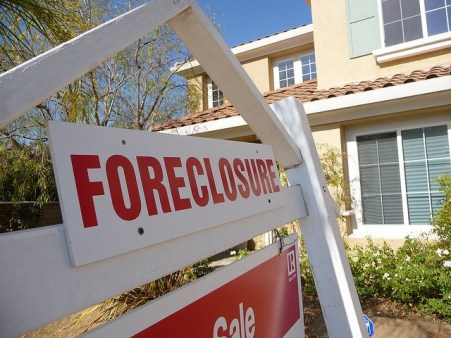Before You Close a Foreclosed Home – 7 Things You Need to Know!
There have been a tremendous amount of foreclosures happening due to the recession – in fact, 5 million homes have gone through foreclosure in nearly seven years since the housing collapse. Buying a foreclosed property can seem very appealing with properties available at a below market discounted rate, allowing you to buy a larger property or a home in a more desirable neighborhood than wouldn’t be possible elsewise. And, if the market value of your purchase appreciates and you decide to sell, your investment in a foreclosed property might bring some substantial gains. But, there are several things you need to keep in mind when dealing with the red-tape that comes with the foreclosed properties territory –
1. What You See Is What You Get:
Never buy what you haven’t seen. It’s critical you assess the condition of a property before bidding, both from the inside and the outside. A view of the exterior and a quick chat with neighbors don’t really give information about essentials such as plumbing, holes in walls, electrical issues and more. It’s useful to go through a selling agent, because if you are looking at a repossessed home that no one bid for at an auction it goes back to the bank and a selling agent will be your best bet at learning more about the property in those circumstances.
2. Do The Math On Repair-Work:
Always calculate what the cost will be to make the house livable, because there is bound to be some amount of repair and touch-up needed on a foreclosed property ranging from paint to fixing the front lawn. A home inspector can help you spot all tentative problems. Always add a ten percent cushion into your repair budget because costs always tend to increase once you jump into it.
3. Do Even More Homework:
Make sure you find out what similar homes are selling for on Zillow.com or Redfin.com. Accordingly, you can bid more competitively, making sure a foreclosed purchase remains a bargain. As a rule of thumb, bid 80% of the value of a property, after subtracting the cost of repairs. According to the National Association of Realtors, a substantial amount of properties sold for 15% below the market value average. So, do your research properly before making a bid.
4. Show Me The Money!:
Make sure you understand the financing restrictions on foreclosures – for example, a bank might not lend you money to buy a foreclosed home in a bad condition until repairs are already done. Also, it is very important to line-up finances in advance to keep you ahead of other bidders – after all, you need to prove you can close the deal against cash buyers. It might be a smart idea to arrange ‘buying and refurbishing financing’ together in advance by using a 203(k) loan from the U.S. Department of Housing & Urban Development, if you decide to occupy the foreclosed property as a primary residence.
5. Get Real with a Real Estate Agent:
The best way to avoid any costly mistakes and to make the whole process of buying a foreclosed property simpler and stress-free is to go through a real estate agent. Buying a foreclosed property involves stiff competition, mortgage complications, repair work, understanding the nature of what type of foreclosure is at hand, and much more. An agent has access to more information than you would normally have access to and can help you secure legal advice for potential legal issues as well as guide you on getting a loan pre-approval and plan out a competitive bid that still allows you to walk away with a bargain.
Buying a home is a rewarding investment – and, although purchasing a foreclosure property is tricky since there is a lot to consider, there is no denying the fact that buying the perfect home at a bargain price is even more satisfying. Keep these seven key pointers in mind when planning carefully, and you are bound to be able to lock in a wonderful deal!
